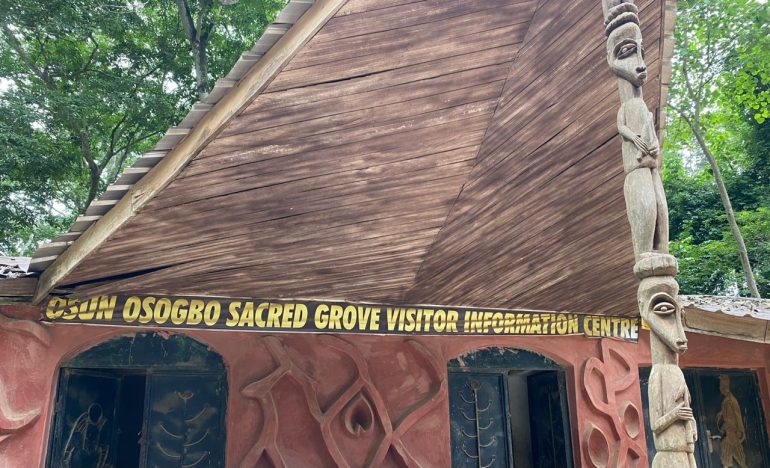By Samuel Ogunsona Osogbo
The Osun Osogbo festival, a highly anticipated event has commenced in Osogbo, the Osun State capital, amidst grandeur and excitement.
The 2-week event is to run from July 29 till its grand finale on August 09, 2024.
The iconic annual festival is an opportunity for devotees around the world to celebrate and honour one of the most powerful Yoruba deities – Osun goddess – also known as the Yoruba goddess of fertility.
The festival attracts thousands of devotees, tourists and enthusiasts from far and wide.
During the festival, the ground is covered with array of activities, including Yoruba traditional games, cultural performance and drums, all showcasing the rich heritage of the Yoruba people.
History has it that the State of Osun also called, Ìpínlẹ̀ Ọ̀ṣun, in Yoruba language was formed from the South-East of Oyo State on 27th August 1991 with its capital in the city of Osogbo.
It’s believed by many that the state’s name is derived from the River Osun, the venerated natural spring that is the manifestation of the Yoruba goddess of the same name.
However, the annual celebration usually starts with the traditional cleansing of the town called ‘Iwopopo’, which is followed in three days by the lighting of the 500-year-old sixteen-point lamp called ‘Ina Olojumerindinlogun’.
Then, it’s followed by the assemblage of the crowns of the past rulers – the Ataojas of Osogbo – for blessings, known as ‘Iboriade’ in Yorubas language.
The most glamorous day during the festival is usually the “Osun Osogbo Procession Day” which most times occurs as part of the grand finale of the event.
On this day, the votary maid,
Known as Arugba, (also called priestess of Osun) takes the center stage by leading the procession of devotees, dignitaries, and cultural groups from the palace to the Osun Shrine. The procession is accompanied by traditional drummers with the atmosphere filled with traditional songs and excitements.

The Arugba carries a sacred calabash on her head, which is believed to contain the spirit of Osun.
The procession is a colourful display of Yoruba culture, with participants in elaborate costumes and accessories.
This day is considered the most glamorous day due to the vibrant display of Yoruba culture and tradition.
Speaking to a native of Osun, Ajibola Osungbohun, who has strong cultural and family connection to Osun State, said the annual Osun festival has positive economic impact on the community. He also believes that the goddess is a powerful protector of the people of Osun and its communities.
“The Osun-Osogbo Festival is a significant cultural event for the people of Osun State, Nigeria” he said.
“This annual festival, held in honor of the river goddess Osun, has deep spiritual, cultural, and social importance. To begin with, I will like to speak on the spiritual and religious aspect of the festival, we the people of Osun State believe that it is deeply rooted in the Yoruba religion and is dedicated to the goddess Osun called (Yeye Osun), who is believed to be the protector of the Osogbo community and a deity of fertility, love, and water. The festival provides a time for devotees to pay homage, seek blessings most especially as one who needs Child, and offer sacrifices to the goddess.
“The cultural aspect is seen in the celebration of Yoruba heritage and traditions. It helps to preserve and promote the rich cultural practices of the Yoruba people, including traditional music, dance, and rituals” Osungbohun added.
He further stated that the festival has over 600 years of history with the aim to promote Yoruba culture and traditions.
“The Osun-Osogbo Festival dates back 600 years and was started by the founders of the Osogbo community. According to history, a group of people led by Olutimehin were clearing all the trees in the area for settlement. But, as soon as they began cutting down the trees, Yeye Osun the river goddess appeared from the water in front of their leader, Olutimehin. She asked him to lead his people to a special place – the present-day Osogbo town.
“In return for an annual sacrifice to her, the goddess promised to protect the group and bring them prosperity. The group accepted the proposition, and today the annual sacrifice to the Osun River Goddess is still celebrated at the Osun-Osogbo Festival”, Osungbohun explained.
